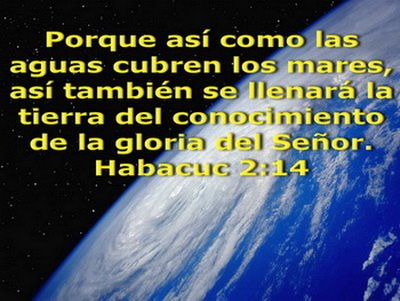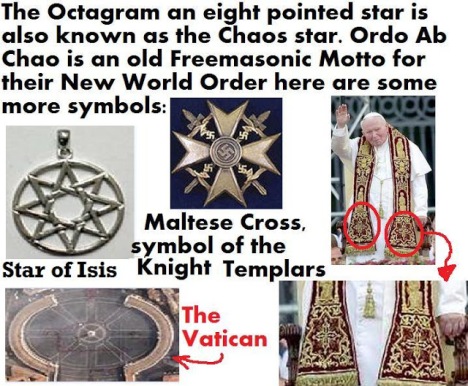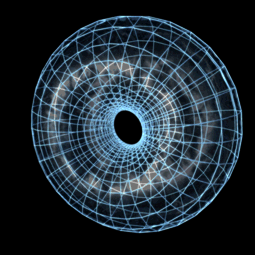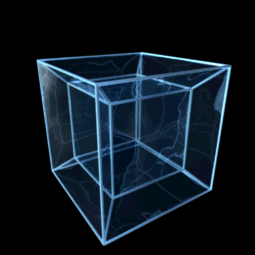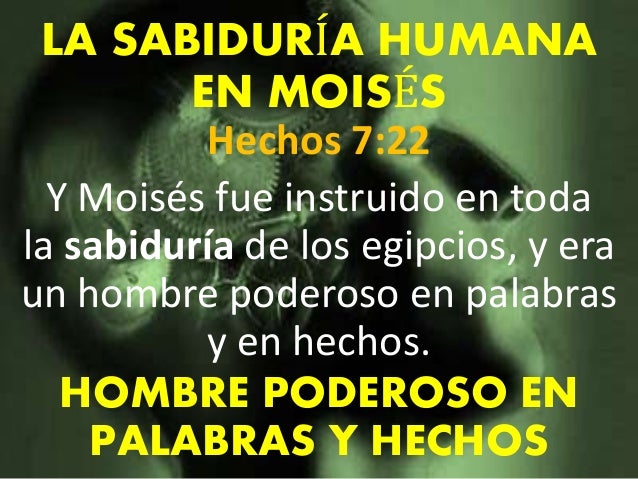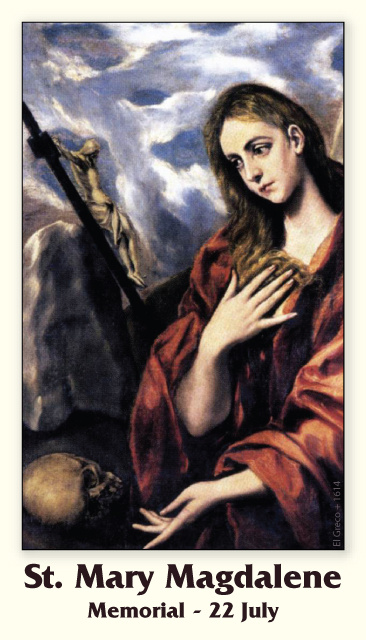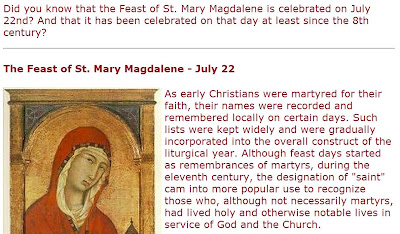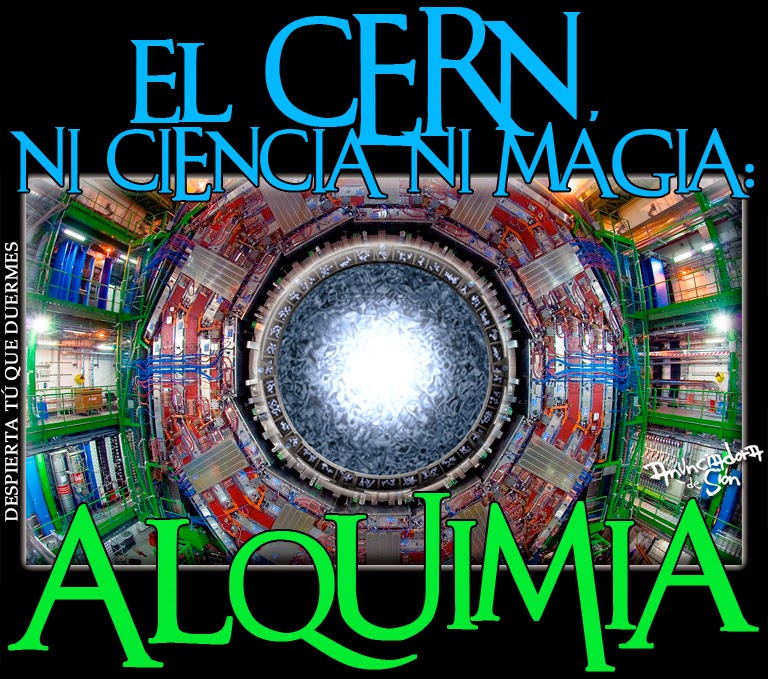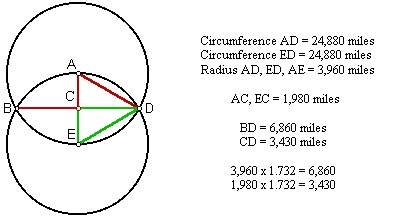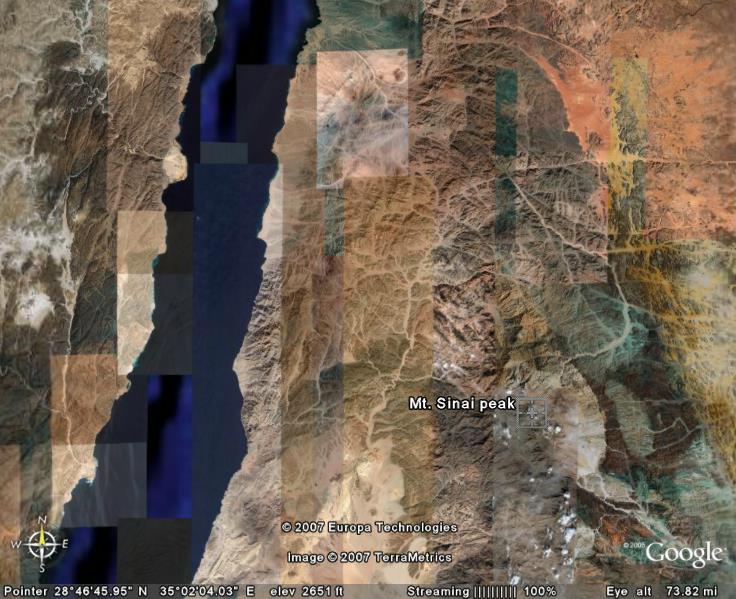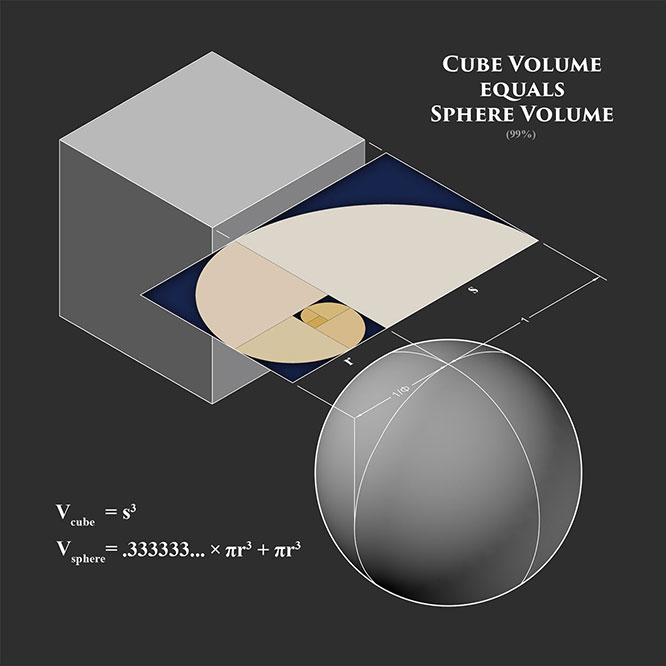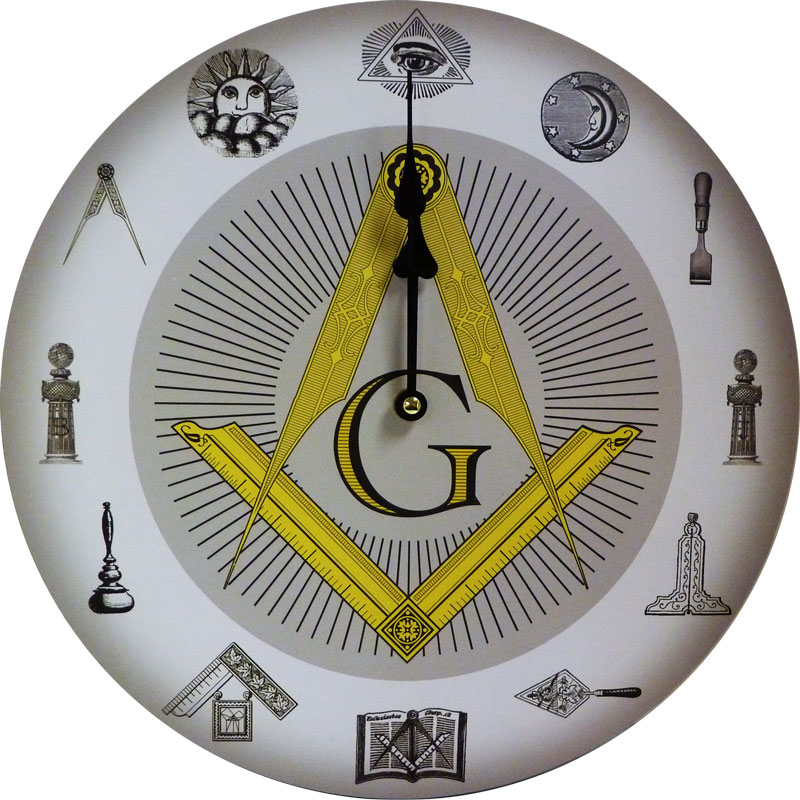|
|
MADRE/MOTHER/METER (GRIEGO) - NEXO CON EL METRO DISEÑADO EN FUNCION A LA LINEA ROSA/ROSE LINE QUE ES EL MERIDIANO QUE PASA POR PARIS
Ιωαννης Ioannes {ee-o-an'-nace} of Hebrew origin 03110;; n pr m AV - John (the Baptist) 92, John (the apostle) 36, John (Mark) 4, John (the chief priest) 1; 133 John = VJehovah is a gracious giverV 1) John the Baptist was the son of Zacharias and Elisabeth, the forerunner of Christ. By order of Herod Antipas he was cast into prison and afterwards beheaded. 2) John the apostle, the writer of the Fourth Gospel, son of Zebedee and Salome, brother of James the elder. He is that disciple who (without mention by name) is spoken of in the Fourth Gospel as especially dear to Jesus and according to the traditional opinion is the author of the book of Revelation. 3) John surnamed Mark, the companion of Barnabas and Paul. Acts 12:12 4) John a certain man, a member of the Sanhedrin Acts 5:6
Gematria: 1119
Μαρκος Markos {mar'-kos} of Latin origin;; n pr m AV - Mark 5, Marcus 3; 8 Mark = Va defenseV 1) an evangelist, the author of the Gospel of Mark. Marcus was his Latin surname, his Jewish name was John. He was a cousin of Barnabas and a companion of Paul in some of his missionary journeys
Gematria: 431
μητηρ meter {may'-tare} apparently a primary word; TDNT - 4:642,592; n f AV - mother 85; 85 1) a mother 2) metaph. the source of something, the motherland
Gematria: 456
'Metro' means 'meter' in Spanish, Italian, Portuguese, etc. The meter is historically defined as 1/10,000,000 of the distance between the North Pole and the equator through Paris, or in other words the Paris Meridian between the North Pole and the equator. The Paris Meridian is also the 'Rose Line' (an esoteric concept popularized by The Da Vinci Code) i.e. a 'Red Line'...
|
|
|
|
|
|
GATE=33
G=7
A=1
T=20
E=5
7+1+20+5=33
HECHOS 12
486. Hechos 12:10: Habiendo pasado la primera y la segunda guardia, llegaron a la PUERTA de hierro que daba a la ciudad, la cual se les abrió por sí misma; y salidos, pasaron una calle, y luego el ángel se apartó de él.
12:11 Entonces Pedro, volviendo en sí, dijo: Ahora entiendo verdaderamente que el Señor ha enviado su ángel, y me ha librado de la mano de Herodes, y de todo lo que el pueblo de los judíos esperaba.
12:12 Y habiendo considerado esto, llegó a casa de María la madre de Juan, el que tenía por sobrenombre Marcos, donde muchos estaban reunidos orando.
487. Hechos 12:13: Cuando llamó Pedro a la PUERTA del patio, salió a escuchar una muchacha llamada Rode,
488. Hechos 12:14: la cual, cuando reconoció la voz de Pedro, de gozo no abrió la PUERTA, sino que corriendo adentro, dio la nueva de que Pedro estaba a la PUERTA.
GATE/PUERTA
HECHOS 12:12 (1+2:1+2/3:3)
| gate in Simple Gematria Equals: 33 |
( |
g
7 |
a
1 |
t
20 |
e
5 |
) |
12:12 Y habiendo considerado esto, llegó a casa de María la madre de Juan, el que tenía por sobrenombre Marcos, donde muchos estaban reunidos orando.
|
|
|
|
|
Perséfone
De Wikipedia, la enciclopedia libre
En la mitología griega, Perséfone (en griego antiguo, Περσεφόνη Persephónē: ‘la que lleva la muerte’) es hija de Zeus y de Deméter (ἡ Μητὴρ hē Mētḕr: ‘la madre’). La joven doncella, llamada hasta entonces Kore (Κόρη: ‘hija’), es raptada por Hades y se convierte en la reina del Inframundo.
Perséfone es su nombre en la literatura épica de la Grecia jónica.[1] En otros dialectos era conocida por otros nombres, como Persephassa o Persephatta. Homero la llama Persephoneia (Περσεφόνεια). Los romanos tuvieron noticia de ella por primera vez a través de las ciudades eólicas y dóricas de la Magna Grecia, donde usaban la variante dialéctica Proserpina.
De ahí que en la mitología romana fuese llamada Proserpina, y como tal llegase a convertirse en un personaje emblemático del Renacimiento.
Visión general[editar]
La figura de Perséfone es actualmente muy conocida. Su historia tiene un gran poder emocional: una doncella inocente, el dolor de una madre por el rapto y el regreso de su hija. También es citada con frecuencia como un paradigma de los mitos que explican procesos naturales, con el descenso y el regreso de la diosa provocando el cambio de estación.
Pero los griegos también conocían otra faceta de Perséfone. Ella era además la terrible Reina de los muertos, cuyo nombre no era seguro pronunciar en voz alta y a la que se referían como «La Doncella». En la Odisea, cuando Odiseo viaja al Inframundo, alude a ella como «Reina de Hierro». Su mito central, aún con toda su familiaridad emotiva, era también el contexto tácito de los extraños ritos iniciáticos secretos de regeneración de los misterios eleusinos, que prometían la inmortalidad a sobrecogidos participantes: una inmortalidad en el mundo subterráneo de Perséfone, en un banquete con los héroes bajo su pavorosa mirada.[2]
El mito del rapto[editar]

Grabado de 1690, obra de Johann Ulrich Krauß (1655-1719): Las compañeras de Perséfone son transformadas en sirenas.
En el panteón olímpico se le da un padre a Perséfone: según la Teogonía de Hesíodo era hija de Zeus y Deméter:
Y él [Zeus] fue a la cama de la abundante Démeter, quien concibió a Perséfone, la de blancos brazos, robada por Hades del lado de su madre.
Sin embargo, Deméter no tenía una posición estable en el Olimpo. Solía vivir muy lejos de los demás dioses, siendo una diosa de la naturaleza anterior a plantar semillas y cultivar plantas. En la tradición olímpica fue cortejada por los dioses Hermes, Ares, Apolo y Hefesto, pero ella rechazó todos sus regalos y alejó a su hija de la compañía de los dioses. Así, llevaba una vida pacífica hasta que su hija Perséfone se convirtió en la reina del inframundo, lo que, según los mitógrafos olímpicos, no sucedió hasta que Hades la raptó y la llevó allí con él. Perséfone estaba cogiendo flores inocentemente con algunas ninfas (y Atenea y Artemisa, según el himno homérico, o Leucipe, o algunas Oceánides) en un campo en Enna cuando Hades apareció, emergiendo de una grieta del suelo. Las ninfas fueron castigadas siendo transformadas en las Sirenas por no haber intervenido. La vida quedó paralizada mientras la desolada Deméter buscaba por todas partes a su hija perdida. Hécate había oído sus gritos y sugirió a Démeter hablar con Helios, el sol, que todo lo ve, para que le contase lo que había pasado.
Finalmente, Zeus no pudo aguantar más la agonía de la tierra y obligó a Hades a devolver a Perséfone, enviando a Hermes para rescatarla. La única condición que se puso para liberar a Perséfone fue que no probase bocado en todo el trayecto, pero Hades la engañó para que comiese seis ,o cuatro según las fuentes, semillas de granada, que la obligaban a volver cada año un mes por cada semilla. En algunas versiones, Ascálafo contaba a los demás dioses que Perséfone se había comido voluntariamente las semillas de granada. Cuando Deméter y su hija estaban juntas, la tierra florecía de vegetación. Pero durante seis meses al año, cuando Perséfone volvía a los infiernos, la tierra se convertía de nuevo en un erial estéril. Fue durante su viaje para rescatar a Perséfone del inframundo cuando Deméter reveló los misterios eleusinos. En una versión alternativa, Hécate rescató a Perséfone. En la versión más antigua la temible diosa Perséfone era la propia Reina del Inframundo.[3]
En algunas versiones Deméter prohíbe a la tierra dar frutos, en otras está tan ocupada buscando a Perséfone que no se ocupa de ella, y en algunas la profundidad de su desesperación hace que nada crezca.
El número de semillas comido por Perséfone cambia también de unas versiones a otras, a menudo en relación con la duración del invierno en la zona de procedencia de la historia.
Este mito puede ser interpretado también como una alegoría de los rituales matrimoniales de los antiguos griegos, que sentían que el matrimonio era una especie de rapto de la novia de su familia por parte del novio, y este mito puede haber explicado los orígenes del ritual del matrimonio. La más popular explicación etiológica de las estaciones puede haber sido una interpretación posterior.
Perséfone, como reina del Hades, sólo mostró clemencia una vez. Debido a que la música de Orfeo era tan arrebatadoramente triste, permitió que éste se llevase a su esposa, Eurídice, de vuelta al mundo de los vivos con la condición de que ella caminase tras él y él nunca intentase mirarla a la cara hasta que estuviesen en la superficie. Orfeo accedió pero falló, al mirar atrás casi al final para asegurarse de que su esposa le seguía, y perdió a Eurídice para siempre.
Perséfone también figura en la historia de Adonis, el consorte sirio de Afrodita. Cuando Adonis nació, Afrodita lo tomó bajo su protección y fue hechizada por su belleza sobrenatural. Afrodita se lo dio a Perséfone para que lo cuidara, pero ésta también quedó asombrada por su belleza y rehusó devolvérselo. La discusión entre las dos diosas fue resuelta por Zeus o Calíope, quien decidió que Adonis pasase cuatro meses con Afrodita, cuatro con Perséfone y los cuatro restantes del año solo.
También departió con Psique cuando esta bajó al inframundo a buscar un cofrecito que Afrodita la había mandado a buscar.
Cuando Hades persiguió a una ninfa llamada Mente, Perséfone la convirtió en una planta de menta.
Perséfone era el objeto del cariño de Pirítoo. Su amigo Teseo y él prometieron casarse con sendas hijas de Zeus. Teseo escogió a Helena, la secuestró con la ayuda de Pirítoo y decidió retenerla hasta que tuviese la edad de casarse. Dejaron a Helena con la madre de Teseo, Etra, y viajaron al inframundo, reino de la elegida de Pirítoo, Perséfone, y del marido de ésta, Hades, quien fingió ofrecerles hospitalidad y preparó un banquete. Tan pronto como la pareja se sentó, las serpientes se enroscaron en torno a sus pies, atrapándolos. Teseo fue finalmente rescatado por Heracles.
El matrimonio formado por Perséfone y Hades fue estéril; no así ella, que fue seducida por su propio padre en forma de serpiente y tuvo un hijo: Zagreo, que fue asesinado por los Titanes a instancias de Hera.
Era frecuente referirse a Perséfone y su madre Deméter como aspectos de la misma diosa, y eran llamadas «las Deméters» o simplemente «las diosas». La historia del rapto de Perséfone era parte de los ritos de iniciación en los misterios eleusinos.
El rapto según la Enciclopedia Británica[editar]
La versión del mito que aparece en la edición de 1911 de la Enciclopedia Británica es la siguiente:
Mientras estaba recogiendo flores con sus compañeras en un prado, la tierra se abrió y Hádes, dios de los muertos, apareció y se la llevó para que fuese su reina en el inframundo. [...] Antorcha en mano, su afligida madre la buscó por todo el mundo, y al no encontrarla prohibió a la tierra seguir creciendo. Así todo aquel año no creció una sola brizna de hierba, y los hombres habrían muerto de hambre si Zeus no hubiese persuadido a Plutón de que dejase marchar a Proserpina. Pero antes de permitirle marchar Plutón le hizo comer la semilla de una granada, y que así no pudiese permanecer alejada para siempre. Por esto fue acordado que pasaría dos tercios (según autores posteriores, un tercio) de cada año con su madre y los dioses del cielo, y el resto del año con Plutón bajo la tierra. [...] Como esposa de Plutón mandaba a espectro, gobernaba a los fantasmas y llevaba a cabo las maldiciones de los hombres.
Cuando Perséfone vuelve con su marido al infierno es cuando las hojas se caen y cuando no da frutos es cuando Démeter se desespera, el otoño, y cuando Perséfone vuelve a la tierra en Primavera es cuando las flores florecen y la tierra se vuelve fértil de nuevo, dado a la alegría de su madre, Démeter.
Investigaciones modernas sobre Perséfone[editar]
¿Perséfone anterior a Grecia?[editar]
Muchos investigadores modernos han argumentado que el culto a Perséfone fue una continuación de la adoración que ya se le profesaba en el Neolítico o en la civilización minoica. Entre los clasicistas, esta tesis ha sido defendida por Günter Zuntz[4] y cautamente incluida por Walter Burkert en su definitivo libro La religión griega.
Con mayor atrevimiento, el mitólogo Károly Kerényi ha identificado a Perséfone con la anónima «señora del laberinto» de Cnosos.
Por otra parte, la hipótesis de un culto universal a la Madre Tierra ha estado bajo creciente crítica en los últimos años. Para saber más sobre esta controversia, vea el artículo Diosa Madre.
Vida, muerte y resurrección[editar]
Inspirados por James Frazer, Jane Ellen Harrison y los mitólogos modernos, algunos investigadores han etiquetado a Perséfone como una deidad de vida, muerte y resurrección.
Consortes y descendencia[editar]
Véase también[editar]
https://es.wikipedia.org/wiki/Pers%C3%A9fone |
|
|
|
|
Now it becomes somewhat clearer as to why there are 360 degrees in a circle. They are all expressing decimal parity of 9 which is to say;centre focused. Even if you halve 45 and so on you will get 22.5 = 9, 11.25 = 9, 5.625, 2.8125 = 9 and so on... The 9 is a self similar axis, the Z axis. The X and Y define the surface topology of the logarithmic spiral, while Z is the central third. 6 and 3 oscillating around nine.
And it’s probably 360 because 3 and 6 are the “nines”.
So that’s 3 dimensional, spatial orientation, what about the 4th dimension; time?
There are 24 hours in a day; 2+4 = 6
There are 60 minutes in an hour; 6+0 = 6
There are 60 second in a minute; 6+0 = 6
So the full revolution is a 6, half is 12 which is a 3. Around the 12 hour clock you constant 3,6,9 oscillation.
3oclock, 6oclock, 9oclock, 12oclock= 3 then 15 = 6, 18 = 9.... 3,6,9,3,6,9,3,6 (8 45 degree movements)
__________________ Squeegee your third-fucking-eye-(Bill Hicks)
|
|
|
|
|
|
|
| Reply |
Message 5 of 5 on the subject |
|
|
|
| Reply |
Message 37 of 37 on the subject |
|
|
|
|
|
|
|
|
|
Fermentation - nigredo - bread and wine of Christ   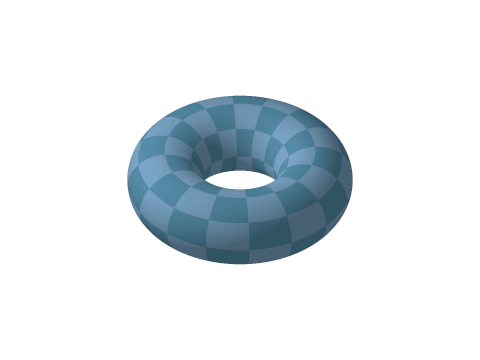 La vesica piscis (vejiga de pez en latín) es un símbolo hecho con dos círculos del mismo radio que se intersecan de manera que el centro de cada círculo está en la circunferencia del otro. Esta forma se denomina también mandorla (que significa "almendra" en italiano).
Se produce el mismo patron. LA SERPIENTE SE MUERDE LA COLA.
EL MISMO CUBO ESTA DISEÑADO EN FUNCION AL NUMERO 12, EN EL CONTEXTO A LAS 12 HORAS DEL RELOJ. EFECTIVAMENTE TENEMOS 4 LINEAS EN LA PARTE SUPERIOR, 4 EN LA PARTE CENTRAL Y 4 LINEAS EN LA INFERIOR (4+4+4=12). EN EL MARCO AL HIPERCUBO, ADONDE TENEMOS 2 CUBOS COMO PODEMOS OBSERVAR EN LA PARTE SUPERIOR, TENEMOS UNA REFERENCIA OBVIA A LAS 24 HORAS DEL DIA, OSEA 12+12=24. ES OBVIO EN ESTE MARCO QUE EL PATRON DEL HIPERCUBO RESPONDE AL DIA DE 24 HORAS. TODO ESTO ES UNA OBVIA REFERENCIA A HECHOS 12:12, OSEA JUAN MARCOS. EL MISMO PATRON EN EL CONTEXTO AL NUMERO 8 DE LA PLAZA DE SAN PEDRO, TAMBIEN RESPONDE AL PATRON DE LAS 24 HORAS= 8*3 HORAS= 1440 MINUTOS= 8*180 MINUTOS= 86400 SEGUNDOS= 8*10800 SEGUNDOS
|
|
|
|
|
| Reply |
Message 21 of 28 on the subject |
|
|
|
|
| Reply |
Message 22 of 28 on the subject |
|
|
|
| Reply |
Message 539 of 550 on the subject |
|
|
|
|
|
| Reply |
Message 224 of 224 on the subject |
|
TUESDAY, MAY 18, 2010
BORROMEAN RINGS (1/3)
“If one proceeded to announce that there is still nowadays a work of the former Egyptians, one of their books that escaped the flames that devoured their superb libraries, and which contains their purest doctrines on interesting subjects, everyone who heard, undoubtedly, would hasten to study such an invaluable book, such a marvel. If one also said that this book is very widespread in most of Europe, that for a number of centuries it has been in the hands of everyone, the surprise would be certain to increase. Would it not reach its height, if one gave assurances that no one ever suspected that it was Egyptian; that those who possessed it did not value it, that nobody ever sought to decipher a sheet of it; that the fruit of an exquisite wisdom is regarded as a cluster of extravagant figures which do not mean anything by themselves? Would it not be thought that the speaker wanted to amuse himself, and played on the credulity of his listeners?”
BORROMEAN RINGS
RING ONE: hidden element
3 Rings linked together, their centers being vertices (corners) of an equilateral Triangle.
Viewed in this diagram, we are looking at a 2-dimensional map of Earth from its side, represented by One ring of our choosing (blue): 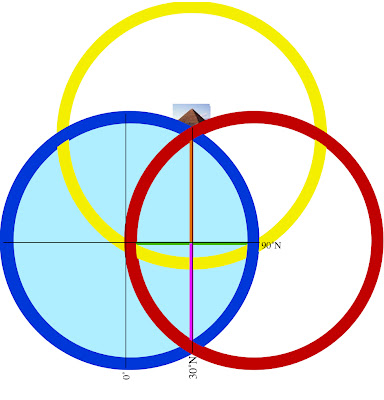 Orient the planet so the Great Pyramid at Giza (30˚N) lays at one of the vertices, the Earth’s center at another, and its axis’ North pole at the third. Exploring this set of relations, it can be demonstrated that the architectural proportions of the Great Pyramid at Giza exhibit a means of utilizing the measure of Earth to express the mathematical constant, π. To understand how we must suspend, for a moment, our habit of thinking of number in purely quantitative terms and consider the ways in which some numbers are also inherently bound to specific geometric forms - like with ‘square’ (1² 2² 3² 4² 5²...) or ‘cubed’ (1³ 2³ 3³ 4³ 5³...) numbers we see a sum attached to a particular shape. Other shapes each possess their own sequence of numbers also attached to their change in proportion. These are called ‘figurate numbers’, and tradition has it they were introduced into Greek mathematics by the pre-Socratic philosopher, Pythagoras, in the 6th century BC. A student of the ancient mystery schools, it is likely he acquired this knowledge during his journeys to Chaldea & Egypt; but all that is really required to calculate the number sequences tied to these shapes is a stack of pebbles and time to spare, counting out the variety of polygons & devising ways of stacking them to construct polyhedrons. To the careful interpreter of nature a pattern was discernible amidst this numerical data - One that, properly placed, could be applied to the measure of all things. It is suggested here that the Great Pyramid at Giza, in relation to the 3-Ring structure given above, embodies this application. Let us then imagine the Great Pyramid as keystone to a system of ‘projective numerology’ - an application of mathematics using figurate numbers to model distances and proportions as shapes, and translating them into their related forms as ‘seen’ from different angles & in other dimensions. At the root of any square pyramid’s architecture is its’ seked - an ancient Egyptian ratio of angular measure used to determine the slope of a pyramid’s sides and thus its’ height.  Utilizing the seked of the Great Pyramid, the perimeter of a square pyramidal base equals the circumference of a circle whose radius is equal to that pyramid’s height. Within our 2-dimensional map, as our planet rotates upon its’ axis, the Pyramid appears to move from one end of a vesica piscis to the other, as if turning on a Wheel whose rim is the 30th parallel. Thus, in one quarter turn (11/14 ≈ π/4) the Pyramid appears to move in a perpendicular line to the base of the equilateral Triangle articulated within our 3-ring diagram. 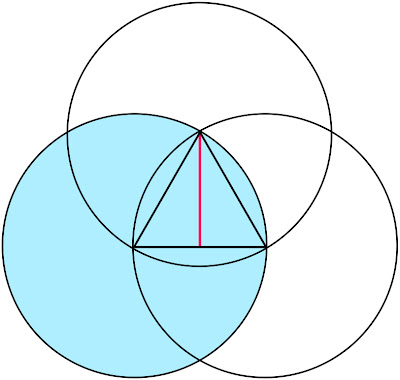  The distance of this perpendicular line from the Great Pyramid to the Earth’s polar axis is 3430 nautical miles, or 10x the cube of seven. Let us then imagine this distance as a stack of 10 cubes, 7x7x7.  A ‘quarter turn’ (11/14) of the Earth thus ‘apportions’ a 10x10 square of these cubes: 10² x 14/11 = 127.27272727...  So, by the logic induced with this arrangement of proportions, distances can be pictured in the mind’s Eye as figurate numbers of octahedral symmetry with 7-unit sides. Reading the Run & Rise of the Great Pyramid’s seked both forward and backward we get a formula for modeling a linear distance of the Earth’s measure as a column made of figurative cubes. 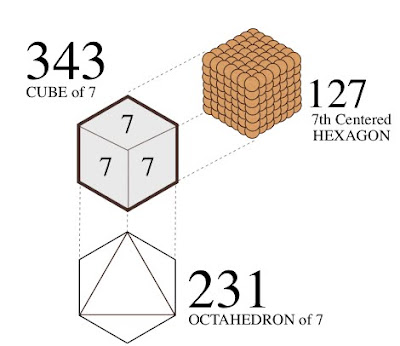 [3d:2d = 343 : 127 ] [3d:2d = 343 : 127 ]As such, we can picture the square pyramid monument atop this ‘column’ as pointing to the center of an imaginary 11th cube. 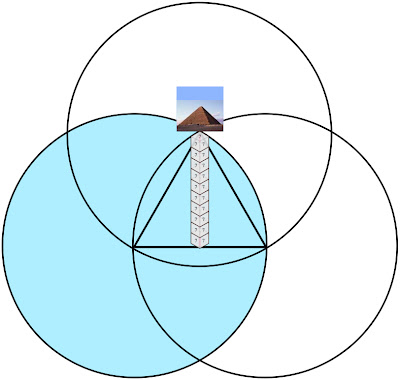 It follows, then, that a 12-hour rotation (180˚) measures a distance from center-point to center-point of the cubes at either end of a column 22 cubes of 7 long. It follows, then, that a 12-hour rotation (180˚) measures a distance from center-point to center-point of the cubes at either end of a column 22 cubes of 7 long.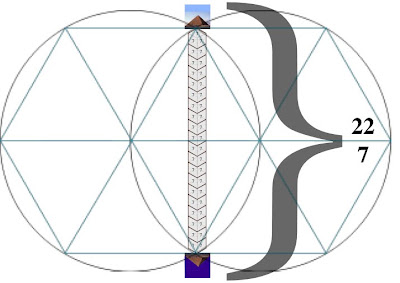 The center point of a unit cube has a specific relationship to the vesica piscis traversed in this 12-hour ‘distance’ within our diagram, as Two rings sharing a single radius give a rational approximation for √3, which is also the space diagonal of any unit cube. 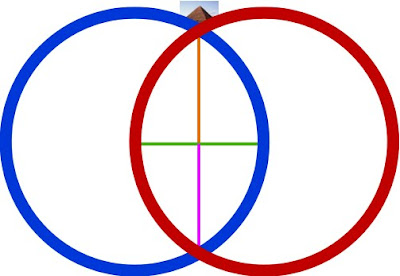  In other words, with respect to a unit cube, the √3 is the distance between opposite corners of that cube. Tracing these space diagonal lines joins the opposing corners, all of which intersect at the center of that cube, and thereby delineate the edges of six square pyramids joined at their apex.  22:7 ≈ π 22:7 ≈ πTo the Egyptian god Thoth, equated with the Greek god, Hermes, and particularly the Roman god, Mercury, this ratio is significant in describing the number of conjunctions aligning Mercury & Earth with the Sun every 7 years. Also known as a ‘synodic cycle’, this is an example of what ancient Greek astronomers called an exeligmos, or ‘Turn of the Wheel’ - describing any period wherein Sun, Moon, and/or planets return to conjunction(s) from which they started. The term is still used today, but is more specifically applied to the Triple Saros cycle of reckoning lunar eclipses, each 120º of longitude apart, eventually returning to a point relatively close to where they began: exeligmos. The Romans used the term annus magnus, or ‘great year’ to describe the same class of periodic event. As we shall see, each of the planets have a harmonic ratio of conjunctions with our planet Earth, and with each other. By fixing the Earth to the center of our ecliptic plane, the motion of other planets relative to our position appear as serpentine spiro-graph patterns, looping in close when aligning into conjunction with the Sun, and looping out to trace a wide arc that coils about the Earth until looping in again for another conjunction. 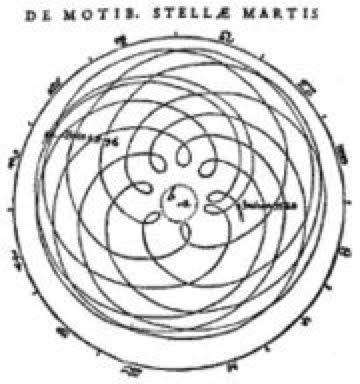 Mars:Earth  Venus: Earth Consistent within our model of 10 cubes of seven, the Great Pyramid (pointing to the center of an eleventh) also corresponds to the tip of an octahedron of 7 = 231. And it just so happens that 11x 231 is the number of days in the exeligmos of Mercury & Earth, 22:7. In addition, the measure of the Great Pyramid’s base side lengths (440 cubits each) give a total base area measuring approximately 231 meters square.Being a close approximation of the value π, and our annus magnus with the planet Mercury (Hermes/Thoth), let us then imagine this column of 22 cubes of 7 as the staff of his Caduceus. As we shall see, the cycles of the other planets can be represented as the serpents entwined about this Staff, their helices in tune with the ratio of their exeligmos.Imparting more than just the inevitable passage of Time, they were the very music of the spheres by which the harmony of creation was made known to the ancient Geometers. Our 3-Rings establish the base unit of an entire system of weights & measures (metrology) by symbolizing an angular dimension constructed by the movement through Time of the Great Pyramid, like the point of a metronome entrained to the Earth’s tempo. In effect attuning the mathematical constant π with Mercury's Great Year & the linear measure of Earth's size in units of angular measure. 'Squaring' the circle much like the Great Pyramid's seked. 1 nautical mile = 1.15 miles The nautical mile used as our base unit of measure for obtaining the distance in cubes of seven is also a unit of angular measure equivalent to 1/60th degree of Earth longitude (=1 minute of arc degree). Converting this into survey land miles = 1/10² the number of days between Earth:Mercury conjunctions (=115). 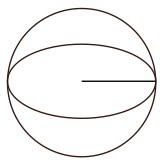 22:7 = 12 hrs @ 30˚north (12x 30 = 360)180˚ = 10,800 arc minutes of degree = 50x 216, the cube of 6216 also equals the number of degrees between Earth:Venus conjunctions (x5 = 1 Earth:Venus pentagram = exeligmos). So, by subdividing each degree of arc into 60 minutes, Earth’s 180˚ rotation (22:7) upon its’ axis thereby possesses a kind of numerological resonance regarding its harmonic with Venus, the exeligmos of the pentagram. Reputedly a symbol of good will among the Pythagoreans, the pentagram also provides an easy means of obtaining the golden ratio. 22:7 = 12 hrs @ 30˚north (12x 30 = 360)180˚ = 10,800 arc minutes of degree = 50x 216, the cube of 6216 also equals the number of degrees between Earth:Venus conjunctions (x5 = 1 Earth:Venus pentagram = exeligmos). So, by subdividing each degree of arc into 60 minutes, Earth’s 180˚ rotation (22:7) upon its’ axis thereby possesses a kind of numerological resonance regarding its harmonic with Venus, the exeligmos of the pentagram. Reputedly a symbol of good will among the Pythagoreans, the pentagram also provides an easy means of obtaining the golden ratio.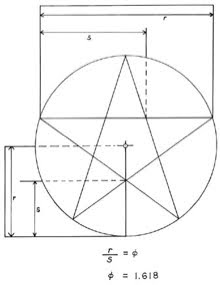 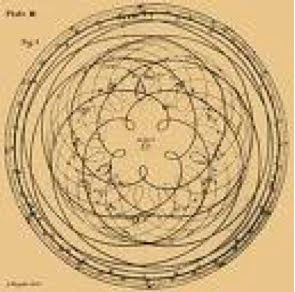 12 : 1 = (22/7) = 60 minutes In this way our measure of both Time & Space define each other by weaving together the value π with the ‘divine proportion’ of the golden ratio. Of the numerous other curious facets to this TooL of Hermetic Metrology, establishing not only our system of weights & measures, its choice of cubes & octahedrons also exhibit a direct connection to speeds of both sound & light: 1 meter =distance trave1ed by sound 1/343th of second =distance trave1ed by light 1/299,792,458th of second 343 = cube of 7 299,792,458 = c = speed of light in meters per second 1296000 / π = number of square degrees in one whole sphere c / 1296000 = 231.321.... 231 = octahedron of 7 Stranger still, the proportions outlined above are also paralleled in the numerical structure of the Tarot de Marseilles’ pattern of 22 major arcana trumps when applied to the Hebrew alphabet - in turn derived from Egyptian (via proto-Sinaitic) hieroglyphs which depicted the symbols those letters are still associated with.  We see traces of this tradition within our own English alphabet with the letter A: also the glyph for an Ox head (turned upside-down) having the same origin as the Hebrew letter aleph. 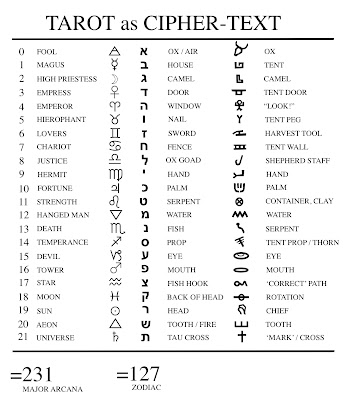 Referred to by 'occultists' as the Book of Thoth (though never adequately explained why), the key to unlocking this puzzle, as with any cryptological TooL, is knowing where to place the cypher, or sifr - the arabic word from which we also get Zero, or ‘nothing’, the rank of every Tarot deck’s Fool [aleph=0]. And this role proves more than suitable for One who ushers in what ultimately reveals a prank, of sorts... leading to what is arguably the greatest punch-line in history.
|
|
|
| Reply |
Message 920 of 920 on the subject |
|
|
|
|
|
|
|
|
|

JHWH
“he who causes to exist"

“THE BLUE BUTTERFLY IS 33YO NOW”
http://www.archivum.info/sci.psychology.theory/2006-09/00000/GOD-G_uv-%20-DESCENDING-A-STAIRCASE.html

http://science2art.tumblr.com/post/20851500889/the-blue-butterfly-is-33yo-now
weLOVEduchamp
http://science2art.tumblr.com/post/16132517632/marcel-duchamp

http://en.wikipedia.org/wiki/Vesica_piscis
https://www.youtube.com/watch?v=zoMk0estzXc

http://www.sriyantraresearch.com/
http://hans.wyrdweb.eu/about-harmony-and-thetrinity/
http://en.wikipedia.org/wiki/Great_Pyramid_of_Giza

PRIME numbers KNIGHTS TEMPLARS
http://en.wikipedia.org/wiki/Knights_Templar

+++++++++++++ you are a SLAVE, Neo. Like everyone else ++++++++++++++

Remember…….all I’m offering you is the truth, nothing more.
https://www.youtube.com/watch?v=Rd6TtD2Rfa0
https://www.youtube.com/watch?v=TbYirSi08m4

http://en.wikipedia.org/wiki/Dendera_Temple_complex#Dendera_zodiac
THE UNIVERSAL ONE
http://www.alexpetty.com/2009/09/07/the-universal-one/

http://en.wikipedia.org/wiki/9_(number)#Religion_and_philosophy

http://en.wikipedia.org/wiki/Bah%C3%A1%27%C3%AD_Faith#Symbols
BEATLES revolution Number 9
https://www.youtube.com/watch?v=LVf5Cr4M-F8

36(9=1+8) Millennium Book by Bonnie Gaunt
http://www.sonstoglory.com/millenniumgematria.htm
Esoteric Meaning of the Butterfly
http://www.in5d.com/esoteric-meaning-butterfly.html

Apocalypse…and the Magnificent Sevens by Bonnie Gaunt


The Case for a Designer:
Go back further still, beyond the moment of creation-what then ?
What was there before the big bang?..facing this, the ultimate question,
challenges our faith in de power of science to find explanations of nature.
The existence of a singularity- in this case the given,
unique state from which the universe emerged- is anathema to science,
because it is beyond explanation…
Is this, then. where scientific explanation breaks down and God takes over,
the artificer of that singularity, that initial simplicity?
The astrophysicist Robert Jastrow, in his book “God and the Astronomers”,
described such a prospect as the scientist’s nightmare:
“He has scaled the mountains of ignorance;
he is about to conquer the highest peak;
as he pulls himself over de final rock,
he is greeted by a band of theologians
who have been sitting there for centuries.”
Wrinkles in Time, by George Smoot(pag 291)
http://en.wikipedia.org/wiki/Wrinkles_in_Time


http://en.wikipedia.org/wiki/The_New_Power_Generation
http://science2art.tumblr.com/ |
|
|
|
|
LA MEDIDA DEL PIE TIENE ORIGEN MATEMATICO, APARTE DE LOS PIES DEL SER HUMANO, TAMBIEN EN EL MERIDIANO DE LA TIERRA-RELACION CON ROSE-LINE-UNGIMIENTO DE MARIA MAGDALENA DE LOS PIES DE CRISTO EN BETANIA.
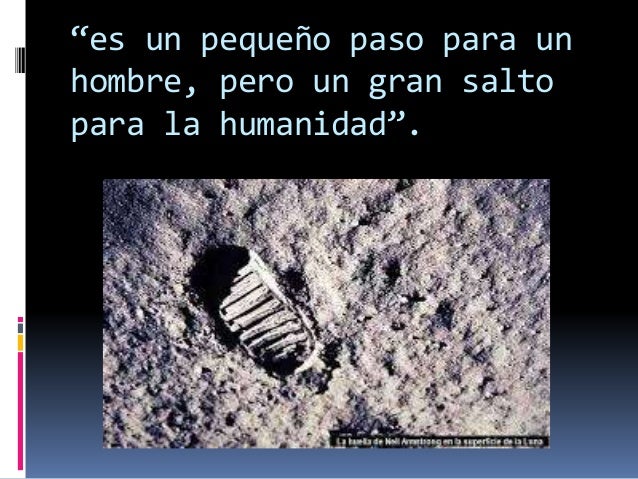
Pie (unidad)
De Wikipedia, la enciclopedia libre
El pie es una unidad de longitud de origen natural, basada en el pie humano, ya utilizada por las civilizaciones antiguas.
El pie romano, o pes, equivalía, como media, a 29,57 cm; el "pie carolingio", o anteriormente denominado «pie drusiano o drúsico» [pes drusianus], equivalía a nueve octavos del romano, esto es, aproximadamente 33,27 cm; y el pie castellano equivalía a 27,8635 cm.[1]
Actualmente, el pie ha sido sustituido en casi todo el mundo por las unidades del Sistema Internacional (SI), salvo en el uso corriente en algunos países anglosajones, donde equivale a 30,48 centímetros. Es también la unidad de medida empleada en aeronáutica para hacer referencia a la altitud.
La primera referencia histórica referida a una medida estándar del «pie» se relaciona con la civilización sumeria, gracias a una definición de la medida encontrada en una estatua de Gudea de Lagash. Según la creencia más popular, se originó tras un descanso en una extenuante jornada de trabajo. El encargado de medir los bloques de piedra no era capaz de incorporarse y decidió que sería mucho más cómodo, para medir los bloques desde el suelo, utilizar los pies desde su posición.[cita requerida]
Sin embargo, los arqueólogos piensan que los egipcios y mesopotámicos favorecieron el codo, mientras que los romanos y los griegos prefirieron el pie. Originalmente tanto los griegos como los romanos dividieron el pie en 16 dígitos o dedos, pero en los últimos años, los romanos también lo dividieron en 12 unciae (de donde derivan las palabras inglesas inch, "pulgada" y ounce, "onza"). El pie griego (ποὐς, pous) variaba de una ciudad a otra, oscilando entre 270 y 350 mm, pero las longitudes utilizadas para la construcción de templos parecen haber sido alrededor de 295 o 325 mm, siendo el primero cercano al tamaño del pie romano. El pie dórico, utilizado en el orden dórico oscilaba entre 325 y 328 mm. El pie romano estándar (pes) era normalmente de 295,7 mm, pero en las provincias, se utilizaba el pes Drusianus (pie de Nerón Claudio Druso) con una longitud de aproximadamente 334 mm. (En realidad, este pie está constatado anteriormente a Druso).[2]
Después de la caída del Imperio Romano, se continuó con algunas medidas tradicionales romanas, pero otras cayeron en desuso. En el año 790, Carlomagno intentó reformar las unidades de medida en sus dominios. Sus unidades de longitud se basaron en la toise y, en particular, la toise de l'Ecritoire, la distancia entre las puntas de los dedos de los brazos extendidos de un hombre.[3] La toise tiene 6 pied (pie) de 326.6 mm.
Sin embargo, no tuvo éxito en la introducción de una unidad estándar de longitud en todo su reino. Durante el siglo IX se utilizó un pie romano de 296,1 mm, y en el siglo X, un pie de unos 320 mm. Al mismo tiempo, los edificios monásticos utilizaban el pie carolingio de 340 mm.[4]
Nomenclatura en inglés
- 1 foot (singular)
- 3 feet (plural)
- 3 ft (abreviado)
- 3 ’ (comilla simple)
Equivalencias
Actualmente el pie se utiliza sólo como unidad de medida popular en los países anglosajones de Estados Unidos, Canadá y Reino Unido, y todavía se emplea en aeronáutica (incluso fuera de los países anglosajones) para expresar la altitud de aviones y otros vehículos aéreos. La adopción por estos países del Sistema Internacional (SI) hace ya unos años irá haciendo caer en desuso esta unidad, incluso en estos países.
Era usual utilizarlo para longitudes de hasta unos tres metros; para longitudes mayores se suele emplear la yarda o la milla. La excepción es la altitud de los aviones, que aún hoy se sigue expresando en miles de pies en casi todos los países.
Para el acotamiento de tierras y costas, el Sistema Público de Agrimensura de Tierras (de Estados Unidos) utiliza una variedad llamada «pie de agrimensura», cuya longitud equivale a 30,4800609601219 centímetros.
En la industria de la madera es usual utilizar el «pie maderero», tratándose en este caso de una unidad de volumen. Su valor es el que corresponde a una pieza cuadrada de 1 pie de lado y 1 pulgada de espesor. 1 pie maderero es igual a 2.359,737216 (un pie maderero entra 423.7 veces en un metro cubico);cm3 (30,48 cm * 30,48 cm * 2,54 cm).
El Padre Lamy en su Apparatus[5] (1696) describe el "pie de burgos" como una longitud de 1 8.5/11 codos antiguos romanos.
Superficie cuadrada de un pie castellano de lado, equivalente a 0,077637 m².
Efectivamente se calcula que la longitud total del meridiano es de 40008 kilometros aproximadamente. Teniendo en cuenta que en el mismo tenemos 360 grados de 60 minutos, que a la vez tambien tienen 60 segundos, tenemos que en los 360 grados equivalen a 129600000 segundos.
360 * 60 * 60 = 1296000
40 008 * 100 000
Observamos que 40008 kilometros equivalen a 4000800000 centimetros. Si dividimos para saber cual es la equivalencia en segundo sexagesimal en centimetros, insisto, del MERIDIANO TERRESTRE TENEMOS QUE HACER LA SIGUIENTE ECUACION
4000800000/1296000=
4 000 800 000 / 1296 000= 3087.03703704
EFECTIVAMENTE 100 PIES APROXIMADAMENTE EQUIVALEN A UN SEGUNDO SEXAGESIMAL DEL MERIDIANO TERRESTRE. EL PIE GRIEGO ERA MUY APROXIMADO A 30.8 CM.
|
|
|
|
|
Templarios=masones - La Rochelle en Francia, Roslin en Escocia y Rosslyn en Virginia - fantasía de "Jesús"
Los masones indican que su historia tendría sus inicios con los templarios (14min.53seg.).
 Templarios - los francmasones e iluminati tenían solo otros nombres antes Templarios - los francmasones e iluminati tenían solo otros nombres antes - y esos extremistas son los destructores principales del mundo
[Así vemos lo que han hecho en Escocia y qué hacen en "América"]:
En la ciudad de Washington hay una zona que se llama Rosslyn (en Virginia), y ese Rosslyn está en una línea horizontal con la Casa Blanca - y justamente es el mismo nombre como Roslin de los francmasones en Escocia (14min.58seg.). Roslin en Escocia fue el lugar donde los templarios han fugado viniendo de La Rochelle in Francia, y en Roslin en Escocia se reunieron otra vez para instalar su Orden de Templarios (caballeros templarios). Allá han celebrado su fantasía de ser "herederos" de una "línea genética" [de fantasía] de un "Jesús" [de fantasía] (15min.20seg.).
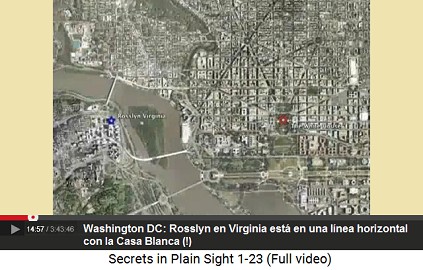 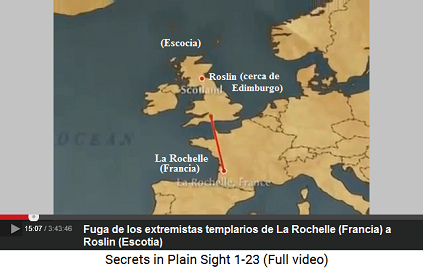 Rosslyn en Virginia están en una línea horizontal con la Casa Blanca (!) - la fuga de los templarios extremistas con sus fantasías de un "Jesús" de La Rochelle a Roslin en Escocia desde 1307, mapa
El viernes, el 13 de octubre 1307 la mayoría de los templarios fueron tomados presos, sus propiedades fueron confiscados, fueron interrogados y torturados a la muerte por los agentes del rey francés lo que solo siguió a una orden del papa (15min.39seg.).
Rosslyn (en Virginia) tiene 2 dos características, un pueblo de baile y un cementerio del ejército de la marina (marine corps memorial). Una línea directa del centro de ese cementerio al centro de la iglesia en Roslin en Escocia toca la punta de la pirámide vial completada de Washington DC (16min.20seg.).
Edimburgo cerca de Roslin: la "milla real"
El rey David I de Escocia instaló edificios en una distancia de una "milla real". La distancia entre la fachada del convento Holyrood y la torre del Castillo de Edimburgo es una "milla real" - y eso es la misma distancia como la "milla real egipcia" (16min.54seg.). Y:
Una milla real egipcia = 8/7 de una milla internacional (statute mile) (16min.58seg.).
 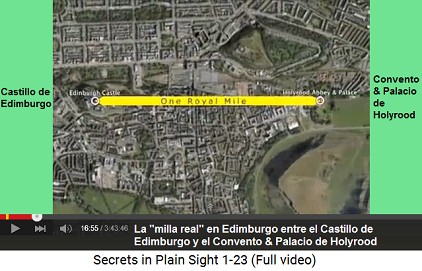 Milla real en Edimburgo, instalada en 1128 apr. por el rey David I de Escocia, el letrero - la "milla real" entre el Castillo de Edimburgo y el convento de Holyrood Y:
El radio polar de la Tierra tiene 3.456 millas reales (con una precisión de 99,995% valor moderno), ver el libro de Richard Heath "Sacred Number" (17min.10seg.).
 El radio polar de la Tierra es 3.456 millas reales (ver Richard Heath: "Número santo" (inglés: "Sacred Number") El radio polar de la Tierra es 3.456 millas reales (ver Richard Heath: "Número santo" (inglés: "Sacred Number")
El rey David instaló esa estructura de Egipto en Escocia y con eso él instaló el gobierno de los caballeros templarios (17min.18seg.). Después inició la arquitectura gótica que vino del Medio Oriente. Así es bien posible que el rey David tenía conexiones con Jerusalén (17min.33seg.).
|
|
|
|
|
25/4=DIA DE SAN MARCOS
DÍAS DE CELEBRACIÓN DE π

Entre los que se encuentran el mismo 22 de Julio (22/7=3.1428), y curiosamente también el 21 de diciembre…

Pero el día oficial de π es el 3-14…
25/4 es el dia de SAN JUAN MARCOS, DIA NUMERO 227 DEL CALENDARIO COPTO
|
858. 1 Corintios 11:9: y tampoco el varón fue creado por causa de la MUJER, sino la MUJER por causa del varón.
63. Marcos 2:27:
Marcos 2:27: También les dijo: El DÍA DE REPOSO fue hecho por causa del hombre, y no el hombre por causa del DÍA DE REPOSO.
|
OBSERVA ESTA DOS VERSICULOS. EL VARON FUE CREADO POR CAUSA DE LA MUJER Y NO LA MUJER POR CAUSA DEL VARON. (MARCO 11/9 O 9/11)
OBSERVA TAMBIEN MARCOS 2:27 (22/7=DIA DE MARIA MAGDALENA) CONFIRMA QUE EL DIA DE REPOSO FUE HECHO POR CAUSA DEL HOMBRE Y NO EL HOMBRE POR CAUSA DEL DIA DE REPOSO.
SILOGISMO=LA MUJER ES EL MISMO DIA DE REPOSO.
MARCOS 9/11 Y MARCO DIA DE MARIA LA MAGDALENA 22/7
INSISTO ¿PORQUE LAS BODAS DE CANA FUERON EN UN SEPTIMO DIA?
ES OBVIO EN ESTE MARCO QUE LA BODA FUE DEL MISMO CRISTO CON MARIA LA MAGDALENA.
LA UBICACION DE NUEVA YORK (74 OESTE O 254 DESDE EL MERIDIANO DE CAMBIO DE DIA ESTA INTERRELACIONADA CON LOS 254 DIAS QUE HAY DESDE EL PRIMERO DE ENERO HASTA EL 11 DE SEPTIEMBRE)
City Coordinates: 40°43′N 74°0′W
φ Latitude, λ Longitude (of Map center):
|
|
|
|
|
I'm guessing the "value" of the G in God is 33 degrees, as in the highest level of ranking to the Freemason's.
33 obviously having tons of symbology (3 + 3 = 6) (13 + 20) (joints + appendages) (number of vertebrae), etc.
Then on top of that we have 528 / 33 = 16, the perfect square of 4, and also 16 = (1 + 6) (God + Man).
LA LETRA G ES LA SEPTIMA LETRA Y LA TREINTA Y TRES, EN EL CONTEXTO A LAS 26 LETRAS DEL ALFABETO INGLES.
26+7=33
BABYLON
LO QUE NO TE MUESTRA EL RELIGIOSO, TE LO MUESTRA EL CAPITALISMO
|
|
|
 Primer Primer
 Anterior
85 a 99 de 129
Siguiente Anterior
85 a 99 de 129
Siguiente Último
Último
|





 [3d:2d = 343 : 127 ]
[3d:2d = 343 : 127 ]

















